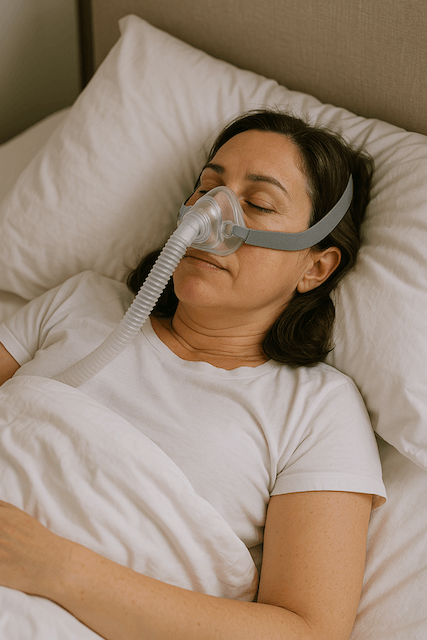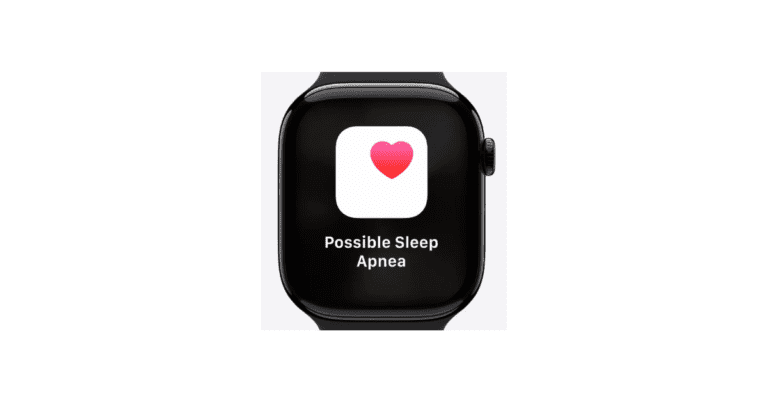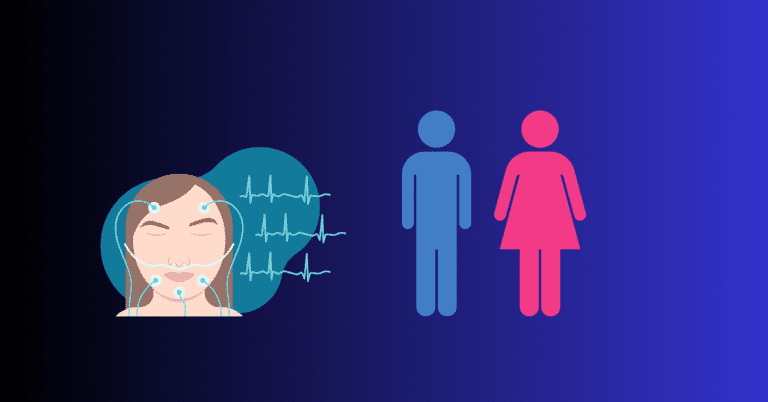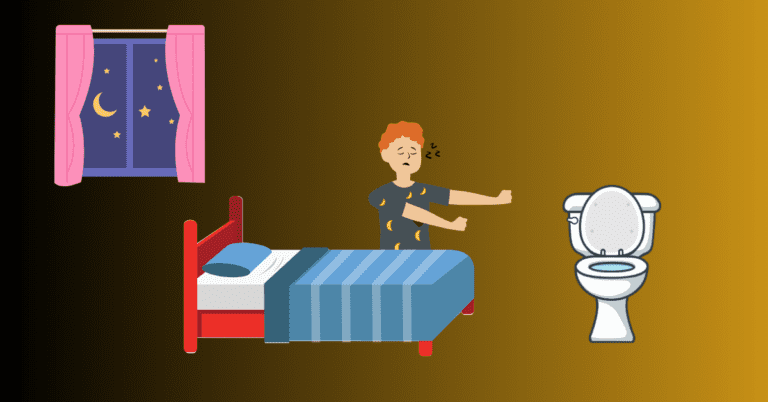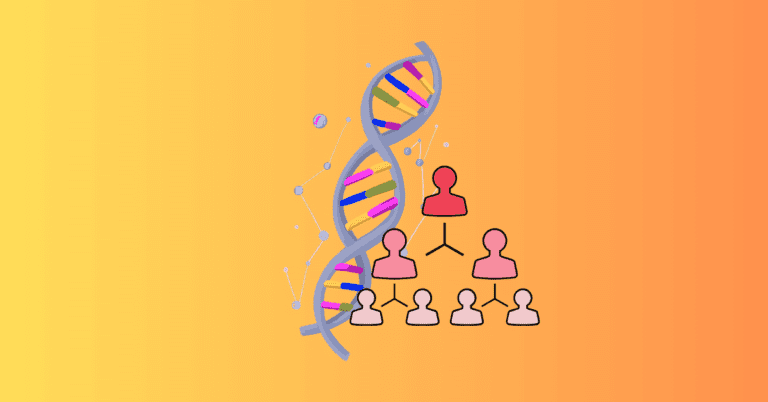Sleep Deprivation: And Its Link With Sleep Apnea
Jeremy Smith is a long-term CPAP user and sleep apnea advocate. After being diagnosed with severe obstructive sleep apnea, he created ByJeremySmith.com to help others navigate CPAP therapy through personal stories, gear reviews, and practical advice.
As you know, sleep is vital to overall health and well-being. Yet, sleep deprivation is increasingly common due to lifestyle factors, stress, modern gadgets, and various health conditions.
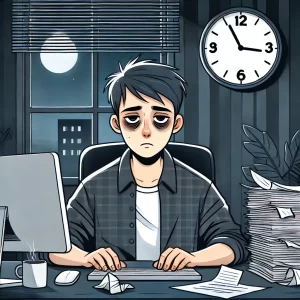
This in-depth article will first explore everything you need to know about sleep deprivation—what it is, its causes, symptoms, and effects on health.
Then, we’ll delve into how sleep deprivation connects with sleep apnea, a serious sleep disorder that further complicates the ability to get restorative sleep.
Part 1: Let’s first unpack Sleep Deprivation
What is Sleep Deprivation?
Sleep deprivation occurs when an individual does not get enough sleep to meet their body’s needs. This deficit can be acute (short-term) or chronic (long-term), depending on how frequently it occurs and how significant the lack of sleep is.
For most adults, the recommended amount of sleep is 7-9 hours per night, but many people fall short of this standard, leading to various negative consequences.
Causes of Sleep Deprivation
There are several reasons why people experience sleep deprivation, ranging from lifestyle habits to medical conditions. Some common causes include:
- Poor Sleep Hygiene: Irregular sleep schedules, excessive screen time, or an uncomfortable sleep environment can lead to poor-quality sleep.
- Work and Lifestyle Demands: Long work hours, night shifts, or balancing school, work, and family can lead to inadequate sleep.
- Stress and Anxiety: Mental health issues can make it difficult to fall or stay asleep.
- Medical Conditions: Conditions such as insomnia, chronic pain, or neurological disorders can disrupt sleep.
- Substance Use: Alcohol, caffeine, and certain medications can interfere with sleep patterns.
Symptoms of Sleep Deprivation
Recognizing the signs of sleep deprivation is important for addressing it before it affects health significantly. Common symptoms include:
- Fatigue and Drowsiness: Persistent tiredness and the need to nap during the day.
- Mood Changes: Increased irritability, stress, and a tendency to feel anxious or depressed.
- Cognitive Impairments: Difficulty concentrating, remembering, or processing information.
- Physical Effects: Headaches, weakened immunity, and an increased risk of accidents or injuries.
- Decreased Productivity: Reduced performance at work or school due to impaired focus and slower reaction times.
Effects of Sleep Deprivation on Health
Sleep is essential for the proper functioning of the brain and body. Chronic sleep deprivation can lead to serious health problems, including:
- Impaired Brain Function: Lack of sleep affects the prefrontal cortex, which is responsible for higher-order thinking, and the amygdala, which processes emotions. This leads to poorer decision-making, reduced problem-solving abilities, and more emotional instability.
- Weakened Immune System: Insufficient sleep reduces the production of protective cytokines, making the body more susceptible to infections.
- Increased Risk of Chronic Diseases: Prolonged sleep deprivation is linked to conditions such as heart disease, hypertension, diabetes, and obesity.
- Hormonal Imbalances: Sleep regulates hormones related to appetite (like ghrelin and leptin), which can lead to weight gain and metabolic issues.
- Physical Appearance: Chronic sleep loss can contribute to dark circles under the eyes, dull skin, and premature aging.
Long-Term Consequences
If left unmanaged, chronic sleep deprivation can contribute to:
- Cardiovascular Problems: The risk of heart disease and stroke increases due to higher blood pressure and inflammation.
- Mental Health Disorders: Prolonged lack of sleep is a contributing factor to conditions such as depression and anxiety.
- Cognitive Decline: Persistent sleep deprivation has been associated with an increased risk of neurodegenerative diseases like Alzheimer’s.
Part 2: The Link Between Sleep Deprivation and Sleep Apnea
Now that we understand what sleep deprivation is and how it affects health, let’s explore its relationship with sleep apnea.
Sleep apnea, particularly obstructive sleep apnea (OSA), is a sleep disorder characterized by repeated interruptions in breathing during sleep.
These interruptions can last anywhere from a few seconds to over a minute and can occur dozens or even hundreds of times throughout the night.
How Sleep Apnea Causes Sleep Deprivation
Sleep apnea is a major cause of sleep deprivation because it prevents the body from entering and maintaining the deep sleep stages necessary for rest and recovery. Here’s how it contributes to sleep deprivation:
- Interrupted Sleep Cycles: Sleep apnea causes a person to wake up momentarily when they stop breathing. While they might not be fully aware of these awakenings, they disrupt the normal sleep cycle, leading to fragmented sleep.
- Reduced REM Sleep: REM (rapid eye movement) sleep is crucial for cognitive function, mood regulation, and overall health. Sleep apnea often prevents a person from reaching or maintaining REM sleep.
- Daytime Sleepiness: Due to the lack of restorative sleep, individuals with untreated sleep apnea often feel excessively sleepy during the day, similar to those experiencing traditional sleep deprivation.
Overlapping Symptoms of Sleep Deprivation and Sleep Apnea
Both sleep deprivation and sleep apnea share a range of overlapping symptoms, making it difficult to distinguish between the two without medical assessment. Some common shared symptoms include:
- Excessive Daytime Sleepiness: Feeling unusually tired or needing naps throughout the day.
- Cognitive Impairments: Difficulty focusing, forgetfulness, and slower reaction times.
- Mood Disturbances: Increased irritability, anxiety, and even depression.
- Physical Health Issues: Higher blood pressure and increased risk of cardiovascular problems.
Vicious Cycle: Sleep Apnea Leading to Sleep Deprivation and Vice Versa
Sleep apnea and sleep deprivation often feed into one another, creating a vicious cycle:
- Untreated Sleep Apnea: Individuals with sleep apnea experience constant interruptions during the night, preventing them from getting the sleep they need. This leads to chronic sleep deprivation, which can exacerbate symptoms of sleep apnea, including weight gain and cardiovascular strain.
- Sleep Deprivation Worsening Sleep Apnea: Sleep deprivation can lead to weight gain and other health issues, which can increase the severity of sleep apnea. Extra weight around the neck and throat can worsen airway obstruction, making sleep apnea episodes more frequent.
The Health Risks of Co-Existing Sleep Deprivation and Sleep Apnea
The combination of sleep deprivation and sleep apnea can significantly increase the risk of severe health outcomes. Some of the most concerning risks include:
- Cardiovascular Disease: Both sleep deprivation and sleep apnea strain the heart. The combination leads to elevated blood pressure and inflammation, which increases the risk of heart disease and stroke.
- Diabetes: Disrupted sleep interferes with the body’s ability to process glucose, raising the risk of developing type 2 diabetes.
- Obesity: Sleep deprivation impacts hunger-regulating hormones, leading to overeating and weight gain, which in turn worsens sleep apnea.
- Decreased Quality of Life: Constant fatigue and health issues can lead to a diminished quality of life, impacting both professional performance and personal relationships.
Managing Sleep Deprivation and Sleep Apnea
Addressing sleep deprivation and sleep apnea requires a comprehensive approach. Here are some strategies:
1. CPAP Therapy for Sleep Apnea
The gold standard treatment for obstructive sleep apnea is Continuous Positive Airway Pressure (CPAP) therapy. This treatment involves wearing a mask connected to a machine that provides a steady stream of air, keeping the airway open during sleep. Regular use of a CPAP machine helps prevent apnea episodes and promotes uninterrupted, restful sleep.
2. Improve Sleep Hygiene
Improving sleep habits can aid in managing both sleep deprivation and mild cases of sleep apnea:
- Consistent Sleep Schedule: Go to bed and wake up at the same time every day.
- Limit Screen Time: Reduce exposure to screens at least an hour before bedtime.
- Create a Comfortable Environment: Keep the bedroom dark, quiet, and cool for optimal sleep.
3. Lifestyle Changes
Lifestyle modifications can also help manage sleep apnea and improve sleep quality:
- Weight Management: Losing weight can decrease the severity of sleep apnea and improve sleep quality.
- Limit Alcohol and Avoid Sedatives: Alcohol and sedatives can relax the throat muscles, increasing the likelihood of sleep apnea episodes.
- Quit Smoking: Smoking can inflame the airway, exacerbating sleep apnea.
4. Consult a Specialist
If you suspect sleep apnea is contributing to your sleep deprivation, consult a sleep specialist. Diagnosis often involves a sleep study (polysomnography), which monitors breathing patterns, blood oxygen levels, and brain activity during sleep.
Conclusion
Sleep deprivation is a widespread issue with far-reaching effects on physical and mental health. When combined with sleep apnea, the potential for severe health outcomes increases.
Addressing sleep apnea with effective treatments like CPAP therapy, alongside adopting healthy sleep practices and lifestyle changes, can break the cycle of sleep deprivation and lead to better overall well-being. Understanding the connection between these two conditions is the first step to reclaiming restful sleep and improving quality of life.
References
- American Sleep Association: For an overview of sleep deprivation, its causes, and health implications, visit the American Sleep Association.
- Centers for Disease Control and Prevention (CDC): The CDC provides statistics and research on the importance of sleep and the impact of sleep deprivation on public health. Check out their resources on sleep and sleep disorders.
- National Sleep Foundation: Detailed information on sleep deprivation symptoms, stages of sleep, and healthy sleep practices can be found at the National Sleep Foundation.
- Mayo Clinic: For understanding sleep apnea, including its causes and treatment, the Mayo Clinic’s sleep apnea guide is a helpful resource.
- Journal of Clinical Sleep Medicine: For medical research articles and studies discussing sleep deprivation’s connection with sleep apnea, refer to Journal of Clinical Sleep Medicine.
- PubMed Central (PMC): Articles on how sleep deprivation and sleep apnea contribute to long-term health issues are available on PubMed Central.
- American Heart Association: The link between chronic sleep deprivation and cardiovascular health can be further explored through the American Heart Association.
- Endocrine Society: For insights into how sleep affects hormone production and impacts weight and metabolism, refer to the Endocrine Society.
- National Institutes of Health (NIH): Comprehensive research on the impact of sleep deprivation on brain function and overall health can be found on the NIH’s MedlinePlus.
Disclaimer: The content on this blog is for informational and educational purposes only and is not a substitute for professional medical advice. Always speak with your doctor or sleep specialist before starting, stopping, or changing any treatment or therapy related to sleep apnea or CPAP use.
